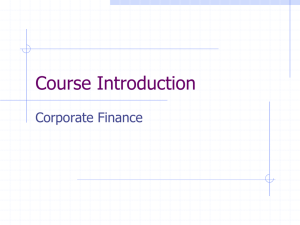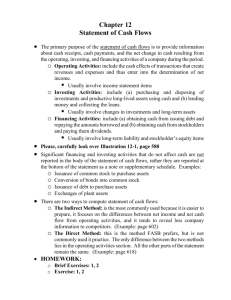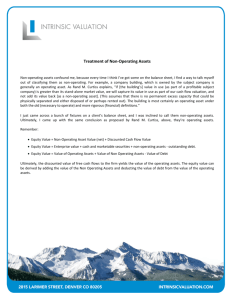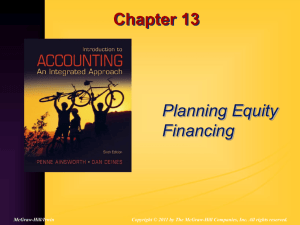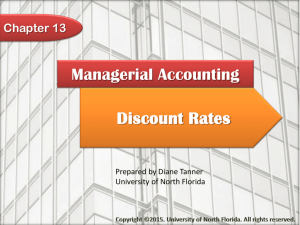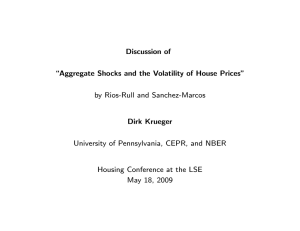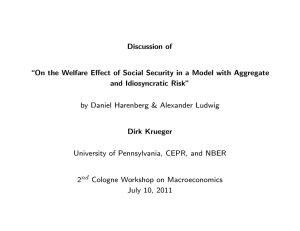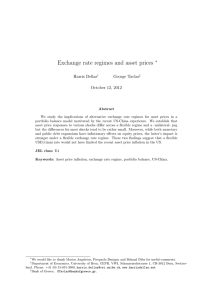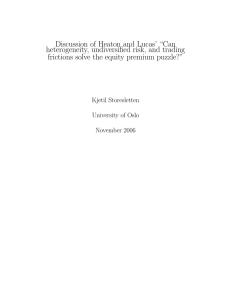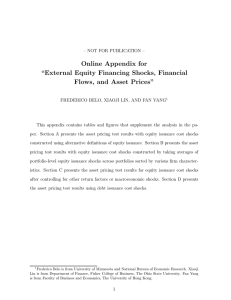External Equity Financing Costs, Financial Flows, and Asset Prices Frederico Belo Xiaoji Lin
advertisement
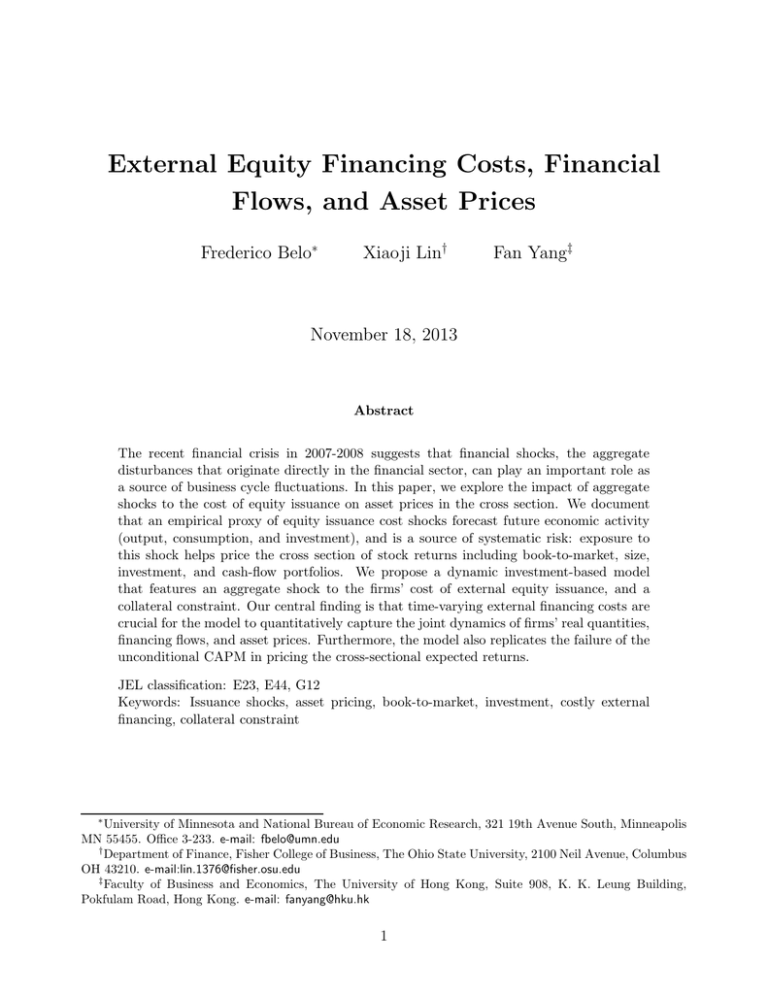
External Equity Financing Costs, Financial Flows, and Asset Prices Frederico Belo∗ Xiaoji Lin† Fan Yang‡ November 18, 2013 Abstract The recent financial crisis in 2007-2008 suggests that financial shocks, the aggregate disturbances that originate directly in the financial sector, can play an important role as a source of business cycle fluctuations. In this paper, we explore the impact of aggregate shocks to the cost of equity issuance on asset prices in the cross section. We document that an empirical proxy of equity issuance cost shocks forecast future economic activity (output, consumption, and investment), and is a source of systematic risk: exposure to this shock helps price the cross section of stock returns including book-to-market, size, investment, and cash-flow portfolios. We propose a dynamic investment-based model that features an aggregate shock to the firms’ cost of external equity issuance, and a collateral constraint. Our central finding is that time-varying external financing costs are crucial for the model to quantitatively capture the joint dynamics of firms’ real quantities, financing flows, and asset prices. Furthermore, the model also replicates the failure of the unconditional CAPM in pricing the cross-sectional expected returns. JEL classification: E23, E44, G12 Keywords: Issuance shocks, asset pricing, book-to-market, investment, costly external financing, collateral constraint ∗ University of Minnesota and National Bureau of Economic Research, 321 19th Avenue South, Minneapolis MN 55455. Office 3-233. e-mail: fbelo@umn.edu † Department of Finance, Fisher College of Business, The Ohio State University, 2100 Neil Avenue, Columbus OH 43210. e-mail:lin.1376@fisher.osu.edu ‡ Faculty of Business and Economics, The University of Hong Kong, Suite 908, K. K. Leung Building, Pokfulam Road, Hong Kong. e-mail: fanyang@hku.hk 1
